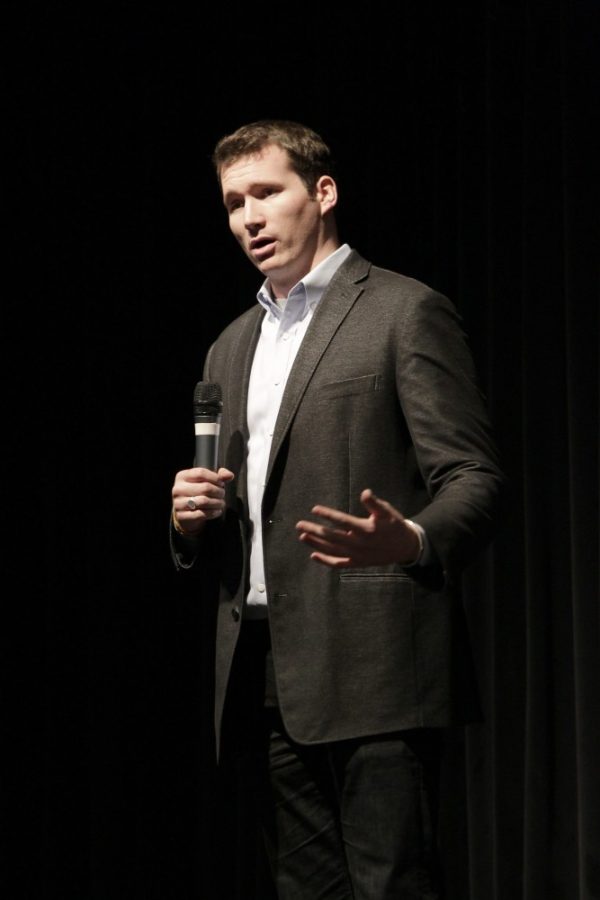Wounded four times during the shooting at Virginia Tech, Colin Goddard visited the Gallagher Theater on Friday to screen a film that demonstrated just how easy it is to purchase a gun.
The film, “Living for 32,” showed Goddard trying to purchase a gun in Virginia, Ohio, Texas. Maine and Minnesota. While purchasing, he was asked for identification and if he was a resident in that particular state. Although Goddard had his ID, he wanted to show viewers that sellers cared more about the sale than the law. He told the seller he had the money but forgot his ID, and was allowed to purchase the gun.
The Associated Students of the University of Arizona and the Graduate and Professional Student Council screened the film to show students the implications of having guns on campus, said Edward Beck, GPSC’s chief of staff.
“We want students to understand from a perspective of a former student who has actually survived Virginia Tech shooting,” he said.
The documentary recounted April 16, 2007, when undergraduate student Seung-Hui Cho killed 32 students at Virginia Tech. Cho was armed with a pair of semiautomatic handguns and used the last shot to kill himself.
The judge said Cho was “fundamentally ill and in need of hospitalization, and presents an eminent danger to self or others as a result of mental illness.” Cho passed two background checks when purchasing his gun because at that time in Virginia, not all medical records were put in the system, Goddard said.
The then-21-year-old Goddard was sitting in class when he heard gunshots. Goddard called 911, and the call was continued by a classmate when Goddard was shot.
“At one point he (the shooter) was standing at my feet and that’s when I was shot a second time in my left hip,” Goddard said in the documentary. “Then he shot me a third time, and it flipped my whole body around.”
Every socioeconomic level, every political party, every country and every state in the country is subject to gun violence, Goddard said in his speech after the film screening. Gun violence, he said, can be prevented through the use of background checks.
“Simple as that,” Goddard added.
State Sen. Olivia Cajero Bedford also stressed the importance of background checks, saying “If it (health records) were in the database, Gabby (Giffords) would’ve been OK today.”
The human brain is not fully mature until age 25, according to Paige Scalf, an assistant psychology professor. The parts of the human brain that are not fully mature are the prefrontal lobes, which are in charge of reasoning, she said.
“I can’t imagine standing in front of a classroom of 100 students carrying firearms,” Scalf added.
Coty McKenzie, Arizona’s director of Students for Concealed Carry on Campus, said if Virginia Tech students were able to carry guns on campus during the shooting, as Senate Bill 1474 would allow, they may have been able to protect themselves.
At the panel, Beck asked Robert Sommerfeld, a commander with the University of Arizona Police Department, if officers would be able to tell who the “bad guy” if a shooting were to occur on campus. Sommerfeld said if guns were allowed on campus it would take the department a much longer time to determine who the suspect was and “neutralize the threat.”









